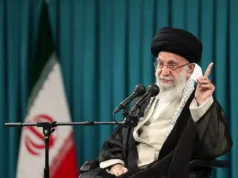The U.S. State Department released a statement yesterday calling additional flotillas to the Gaza Strip irresponsible. “Mechanisms exist for the transfer of humanitarian assistance to Gaza by member states and groups that want to do so. Direct delivery by sea is neither appropriate nor responsible, and certainly not effective, under the circumstances,” the statement read. “We, along with our partners in the Quartet, urge all those wishing to deliver goods to do so through established channels so that their cargo can be inspected and transferred via land crossings into Gaza. There is no need for unnecessary confrontations,” it said.
While Vice President Joe Biden immediately backed Israel’s right to board the flotilla ship on May 31 that left nine dead, this is the first time the Obama administration has outwardly announced its support for Israel’s right to defend itself and impose a blockade on Gaza. The U.S. had previously been very careful in its response to the deadly raid, neither wholeheartedly condemning nor accepting Israel’s use of force to stop the ships after its commandos were attacked as they rappelled down from helicopters.
Tellingly, the United States’ statement came only after Israel decided to bow to worldwide pressure and condemnation and ease its blockade on the Gaza Strip. Although the naval blockade will remain in place, Israel will now allow more products into Gaza via border crossing points, including all ‘civilian items’ such as toys, stationery, kitchen utensils, mattresses and towels. Weapons and materials that could be used to manufacture arms will not be allowed through, but building materials for the Palestinian Authority (PA) and UN-approved projects will be allowed to enter.
However, there was no reason for Israel to ease its land blockade of the Gaza Strip. First, doing so is dangerous. As Shin Bet chief Yuval Diskin said, “Lifting the naval blockade on Gaza would constitute a very dangerous development for Israel” and “a major security breach” as terrorist organizations in the area “continue to arm themselves, both through production and smuggling.” And second, easing the blockade will not improve Israel’s international standing. Indeed, world response to Israel’s decision was merely lukewarm. While White House spokesman Robert Gibbs called the easing of sanctions a “step in the right direction,” International Middle East envoy Tony Blair said the move is a “good start.” Unsurprisingly, Hamas and the Palestinian Authority agreed that the blockade should be completely lifted. “This is an attempt to sap international anger over the blockade on the Gaza Strip,” Hamas official Ismail Radwan told Reuters. And according to UN spokesman Chris Gunness, “The siege must be ended, not just eased. Otherwise Israel continues to be in breach of international law.”
Rather than cave to international pressure, Israel should maintain the blockade and consider using it as leverage in dealing with Hamas. Only in the Middle East – where logic frequently stands on its head – is it assumed that a sovereign nation should keep a terrorist group pledged to its destruction on the dole.





